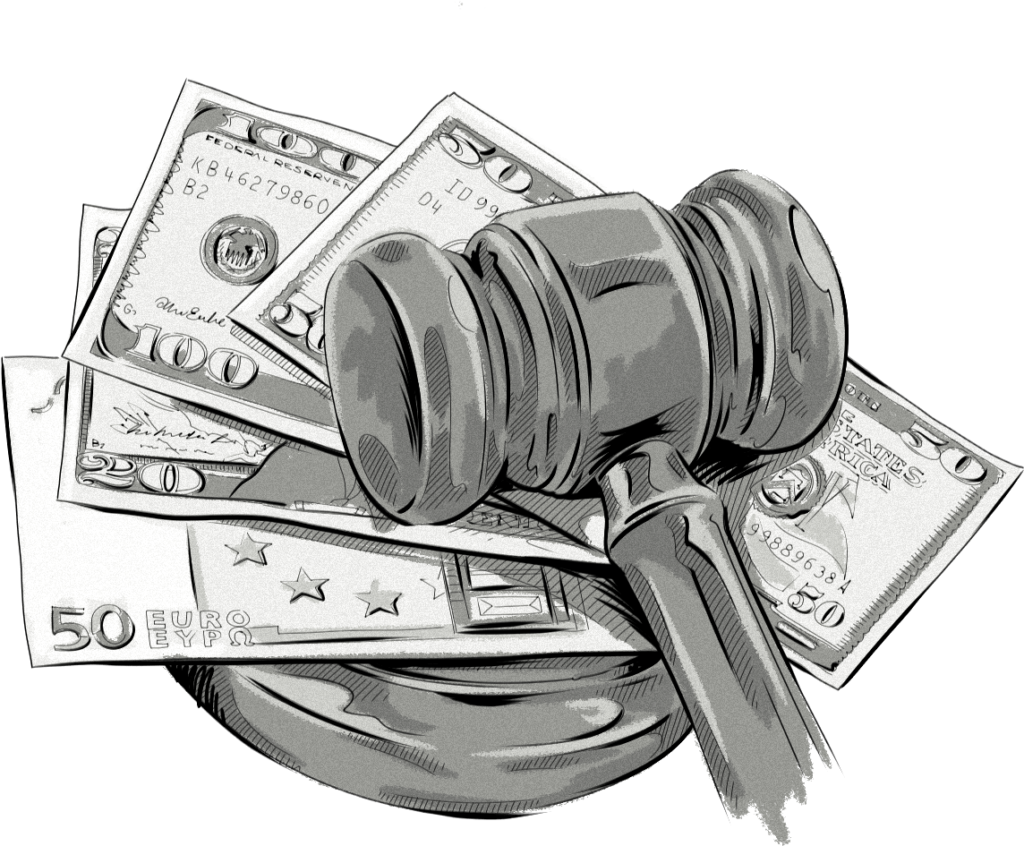Navigating the legal and financial world in the United States can be confusing, especially if you’re unfamiliar with the language often used in contracts, tax forms, banking, and court documents. This guide provides simple definitions of common U.S. legal and financial terms to help you feel more confident in everyday situations such as applying for a loan, renting an apartment, or preparing for taxes.
Understanding this basic vocabulary can help you make smarter choices, avoid costly mistakes, and communicate more effectively in professional or personal situations.
Why You Should Learn Legal and Financial Terminology
Whether you’re signing a lease, applying for a mortgage, or involved in a legal matter, you’ll encounter specific terms. Misunderstanding these words can lead to signing something you didn’t fully understand, missing key financial deadlines, or getting into legal trouble.
Knowing the right terms gives you the power to:
- Make informed decisions
- Understand your rights and responsibilities
- Avoid common legal and financial errors
Now let’s break down some of the most common legal and financial words you’re likely to encounter.
Common U.S. Legal Terms
Affidavit
A written statement made under oath. It is used as evidence in court and must be signed in front of a legal authority.
Plaintiff
The person or group who starts a lawsuit by filing a complaint in court.
Defendant
The person or group being sued or accused in a court case.
Subpoena
A document that legally requires someone to appear in court or provide evidence.
Deposition
An interview conducted under oath outside of the courtroom. The answers are recorded and may be used during a trial.
Felony
A serious crime, like theft over a certain amount or assault, usually punished by more than one year in prison.
Misdemeanor
A less serious crime, such as disorderly conduct or minor theft, often punished by fines or less than a year in jail.
Due Process
The legal right to fair treatment through the judicial system, including notice of charges and a chance to be heard.
Arbitration
A way to resolve disputes without going to court. A neutral third party reviews the case and makes a decision.
Power of Attorney
A document that allows someone else to act on your behalf in legal or financial matters.

Common U.S. Financial Terms
Credit Score
A number that shows how likely you are to repay debt. Scores usually range from 300 to 850. A higher score often leads to better loan offers.
APR (Annual Percentage Rate)
The cost of borrowing money, shown as a yearly interest rate. This rate includes both interest and fees.
Mortgage
A type of loan used to buy property. If you fail to repay it, the lender can take the property.
Principal
The original amount of money borrowed or invested, before adding interest.
Interest
The cost of borrowing money or the earnings from savings or investments, usually expressed as a percentage.
Asset
Anything you own that has value, such as cash, property, stocks, or vehicles.
Liability
Money you owe or debts you are responsible for paying.
Equity
The value of your ownership in something, like a home, after subtracting what you still owe on it.
Net Worth
The total value of your assets minus your liabilities. It shows your overall financial health.
Bankruptcy
A legal process for people or businesses that can’t repay their debts. It may allow you to erase or reduce debt under court supervision.
Legal and Financial Terms in Real-Life Situations
Understanding how these terms are used in daily life helps bring them to life. Here are a few common situations where these words appear.
Renting an Apartment
- Lease Agreement: A contract between a landlord and tenant outlining rental terms.
- Security Deposit: Money paid at the start of a lease to cover potential damage.
- Eviction: Legal removal of a tenant from a property due to lease violations.
Getting a Loan
- Collateral: Property or assets you promise to give the lender if you don’t repay the loan.
- Loan Term: The time you agree to take to repay the loan.
- Default: Failing to make payments on time or according to the loan agreement.
Employment and Pay
- Gross Income: Your total earnings before any taxes or deductions.
- Net Income: Your earnings after taxes and deductions are removed.
- W-2 Form: A tax form that shows your total wages and taxes paid through your employer during the year.
Taxes
- Tax Deduction: A reduction in your taxable income based on certain expenses.
- Tax Credit: A direct decrease in the amount of tax you owe.
- IRS: The government agency that collects taxes and enforces tax laws.
Common Acronyms in U.S. Legal and Financial Contexts
Here are some of the most common acronyms you’ll see and what they stand for.
| Acronym | Full Term | What It Means |
|---|---|---|
| IRS | Internal Revenue Service | Collects federal taxes |
| LLC | Limited Liability Company | Business structure protecting personal assets |
| FDIC | Federal Deposit Insurance Corporation | Insures bank deposits |
| FICO | Fair Isaac Corporation | Develops credit scoring models |
| APR | Annual Percentage Rate | Cost of borrowing |
| ROI | Return on Investment | Measures profit from investments |
| GDP | Gross Domestic Product | Measures national economic activity |
| 401(k) | Retirement Plan | Employee savings plan |
| ATM | Automated Teller Machine | Bank machine for cash and deposits |
| FAFSA | Free Application for Federal Student Aid | Form for student financial aid |
Simple Ways to Learn and Remember These Terms
If you’re trying to learn these terms for the first time, here are a few tips:
- Use flashcards with the term on one side and its definition on the other
- Watch courtroom shows or financial news for real-world usage
- Read documents like your bank statement or lease and highlight unfamiliar words
- Practice using these words in sentences or conversations
Conclusion
Legal and financial language may seem complicated, but once you break down the terms, it becomes much easier to understand. Learning these basic U.S. legal and financial terms will help you feel more prepared when dealing with contracts, taxes, banking, and other essential life situations.
You don’t need to become a lawyer or accountant to benefit from this knowledge. Just being familiar with everyday terms gives you the tools to ask the right questions, avoid costly mistakes, and take more control over your personal and financial life.
Do Follow USA Glory On Instagram
Read Next – Farmers’ Market on the Terrace Business Bay






